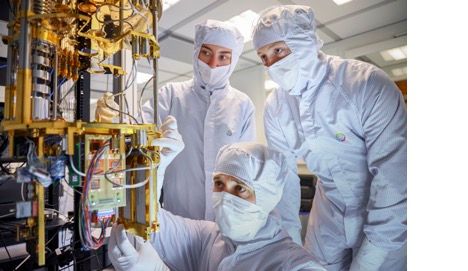- Cisco Community
- Technology and Support
- DevNet
- General DevNet Topics
- DevNet General Discussions
- Word of the Week: Qubit
- Subscribe to RSS Feed
- Mark Topic as New
- Mark Topic as Read
- Float this Topic for Current User
- Bookmark
- Subscribe
- Mute
- Printer Friendly Page
Word of the Week: Qubit
- Mark as New
- Bookmark
- Subscribe
- Mute
- Subscribe to RSS Feed
- Permalink
- Report Inappropriate Content
05-17-2023 08:15 AM
In 2022, the Royal Swedish Academy of Sciences awarded the Nobel Prize in Physics to Alain Aspect, John F. Clauser, and Anton Zeilinger for their "experiments with entangled photons, which established the violation of Bell inequalities and pioneered quantum information science." This represents a significant milestone for quantum computing.
Qubit - Short for quantum bit, is the basic unit of information in quantum computing.
The quantum computing system is complex, but the fundamental building block is similar to traditional computing. Bits are the fundamental building block of traditional computing, and qubits (quantum bits) are the fundamental building blocks of quantum computing systems.
However, qubits are significantly more complex and powerful than classical bits due to two fundamental principles of quantum mechanics: quantum superposition and quantum entanglement.
Superposition:
Superposition is a fundamental concept in quantum mechanics referring to particles that can be in multiple states at once. So, one qubit can be in a state of 0, 1, or any proportion of both 0 and 1 at the same time, whereas classical bits can only be in one of two states (0 or 1). This means that 10 qubits can simultaneously represent 1024 classical bits of information in their superposition. However, it's important to know that when you measure the quantum state, it will collapse to a single classical state, so you can't directly read all 1024 classical bits of information at once. The power of quantum computers comes not from storing huge amounts of data but from processing it in parallel due to superposition and entanglement.
Entanglement:
Qubits can be entangled. This means the state of one qubit can be dependent on the state of another. Quantum entanglement is a phenomenon in quantum mechanics where two or more particles become linked, such that the state of one particle is directly related to the state of the other, no matter how far apart they are. This is the famous phenomenon that Einstein called "spooky action at a distance." It's really hard to imagine that entangled particles maintain this connection even if they are light-years apart. Why do we say they are linked? Because entangled qubits can use teleportation to transfer information. Like Start Trek ? Absolutely not ! Quantum teleportation transfers information about a quantum state, but no "matter" is transferred.
This phenomenon is difficult to comprehend from a classical physics standpoint, but has been experimentally confirmed and is one of the key principles underlying the field of quantum information science.
Of course, there are other important principles of quantum mechanics. For instance, measurement is crucial; it collapses the superposition of states into one definite state. Quantum gates are also key; they manipulate the state of qubits and serve as the basic building blocks of a quantum computer. And there are many more principles in this amazing field.
We all know that the qubit is the most basic unit of quantum computing, but it's not something we can fully comprehend in a short sentence or brief amount of time. If you find the quantum world fascinating and your mind is entangled in it, you might want to explore topics related to the Nobel Prize in Physics 2002. There are also tons of resources on quantum computing available on the web for your perusal.
The Nobel Prize in Physic 2022
The Einstein–Podolsky–Rosen (EPR) paradox
Field guide to quantum computing
Quantum computing in a nutshell
- Labels:
-
General
Discover and save your favorite ideas. Come back to expert answers, step-by-step guides, recent topics, and more.
New here? Get started with these tips. How to use Community New member guide
